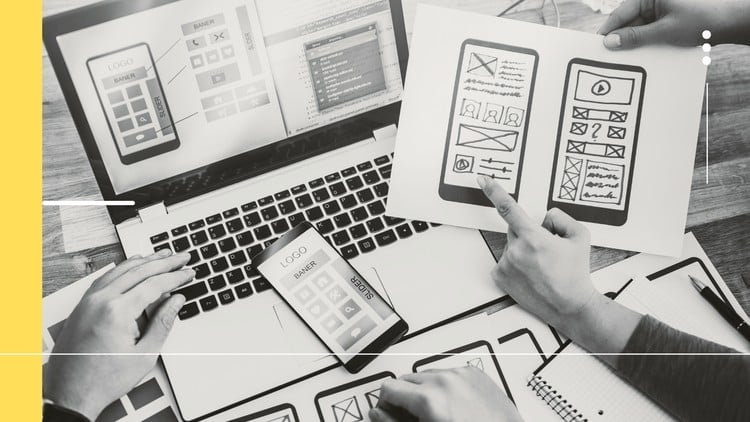
Complete guide applicable to Lean UX, Process, design thinking, hypothesis, MVP, Research, Metrics and Testing
⏱️ Length: 10.8 total hours
👥 69 students
🔄 October 2025 update
Add-On Information:
Note➛ Make sure your 𝐔𝐝𝐞𝐦𝐲 cart has only this course you're going to enroll it now, Remove all other courses from the 𝐔𝐝𝐞𝐦𝐲 cart before Enrolling!
-
Course Overview
- This certification program empowers participants to navigate the fast-paced world of product innovation by mastering a lean, iterative approach to User Experience (UX) design. It integrates core principles of efficient product development with a strong focus on validated learning, ensuring every design decision is backed by user data and business objectives.
- You will learn to strategically define, build, and test minimal viable solutions, continuously refining products based on real-world feedback and measurable performance indicators. This course is designed for professionals eager to drive innovation while minimizing risk and maximizing value delivery in product development cycles.
- Delve into the art of transforming ambiguous user needs into concrete, testable hypotheses, developing quick prototypes, and leveraging precise metrics to guide product evolution. It’s about building the right thing, in the right way, at the right time, with agility and user-centricity at its core.
-
Requirements / Prerequisites
- No advanced technical expertise is required; a foundational understanding of general software development lifecycles or an existing interest in product design and user experience principles will be beneficial.
- Participants should possess a keen desire to learn iterative design processes, embrace experimentation, and be open to challenging traditional design methodologies for greater efficiency and impact.
- Access to a personal computer with a stable internet connection is essential for engaging with course materials and any potential practical exercises.
- An inquisitive mindset and a collaborative spirit are encouraged, as Lean UX thrives on teamwork, hypothesis generation, and shared learning.
-
Skills Covered / Tools Used
- Strategic Problem Framing: Master the art of deconstructing complex user challenges into precise, testable hypotheses, laying a solid foundation for data-driven design initiatives and measurable project success.
- Rapid Experimentation & Validation: Develop expertise in designing concise UX experiments, defining critical success metrics, and crafting efficient test plans to swiftly validate or invalidate product assumptions.
- Lean Prototyping & MVP Construction: Learn to conceptualize and construct diverse Minimum Viable Products (MVPs) and prototypes with an emphasis on accelerated learning and feedback cycles, rather than comprehensive feature development.
- Data-Driven UX Insights: Acquire the capability to identify pertinent user behavior metrics, effectively collect actionable data, and synthesize both qualitative insights and quantitative analytics to inform iterative design enhancements.
- Cross-Functional Alignment: Cultivate skills in facilitating seamless communication and shared understanding across product, design, engineering, and business stakeholders, ensuring cohesive product vision and execution.
- Adaptive Tool Integration: Understand how to strategically leverage and integrate a spectrum of contemporary design, analytics, and collaboration tools to optimize a lean, hypothesis-driven product development workflow.
-
Benefits / Outcomes
- Accelerated Product-Market Fit: Gain the ability to quickly discover and validate market needs, ensuring products are built for an eager audience, significantly reducing time and resources spent on features nobody wants.
- Enhanced Career Versatility: Position yourself as a highly adaptable and valuable asset in any modern product team, capable of driving innovation from conception to launch with a data-informed approach.
- Reduced Development Waste: Implement strategies that minimize rework, eliminate unnecessary features, and streamline the design-development handover, leading to more efficient resource utilization and higher ROI.
- Empowered Decision Making: Cultivate a mindset rooted in evidence, enabling you to make confident product decisions based on real user data and measurable outcomes, rather than assumptions or subjective opinions.
- Leadership in Agile Environments: Equip yourself to lead or significantly contribute to agile and lean product teams, championing user advocacy and data-driven iteration throughout the entire product lifecycle.
- Impactful Product Delivery: Transform your approach to product development, consistently delivering user-centric solutions that genuinely solve problems, delight users, and achieve robust business objectives.
-
PROS
- Highly Practical Curriculum: Focuses on actionable techniques and real-world application, allowing immediate implementation of learned strategies into current or future projects.
- Concise Yet Comprehensive: Delivers a substantial body of knowledge in a manageable timeframe (10.8 hours), making it accessible for busy professionals seeking a rapid upskilling opportunity.
- Future-Proof Skillset: Equips learners with methodologies that are increasingly critical in competitive, innovation-driven industries, ensuring long-term career relevance and demand.
- Measurable Impact Focus: Emphasizes generating tangible results and proving value through metrics, a highly sought-after capability in any business setting.
-
CONS
- Requires Active Application: While comprehensive, true mastery demands consistent practice and application of the iterative methodologies in real-world scenarios beyond the course content.
Learning Tracks: English,Design,User Experience Design
Found It Free? Share It Fast!